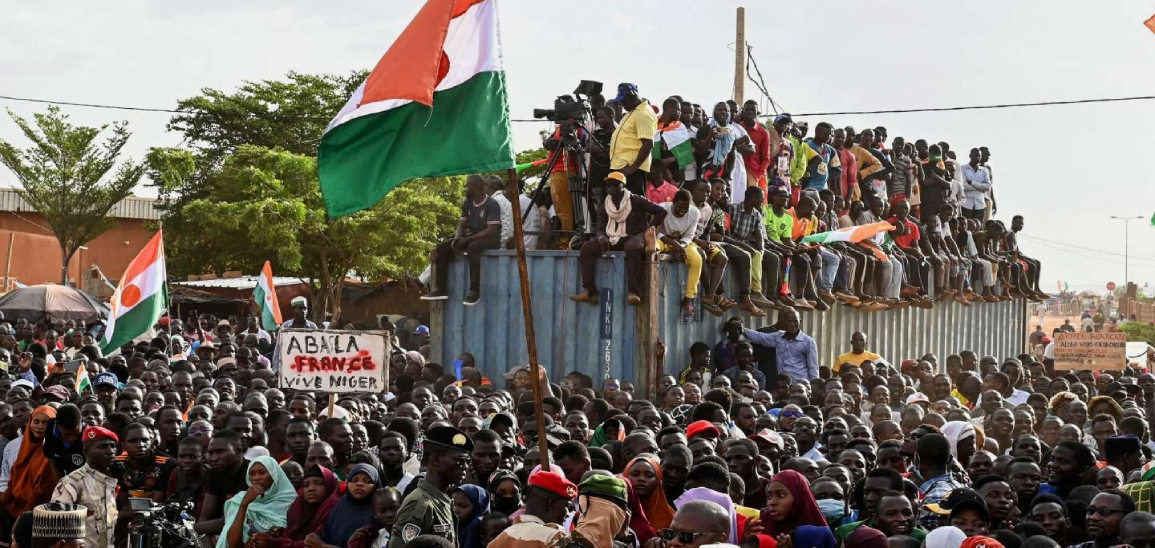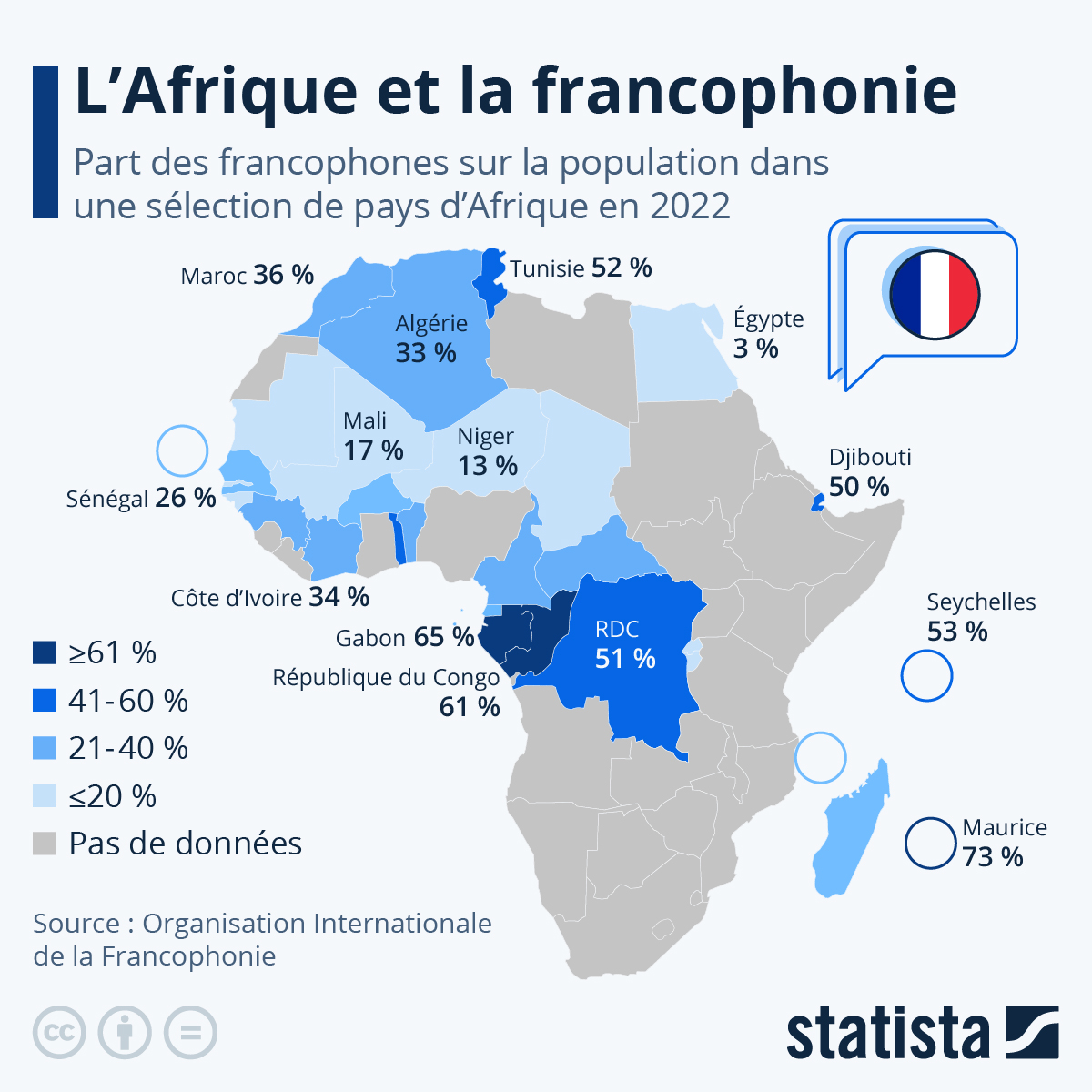Francophone Africa: End of Road?
September 30, 2023 | Expert Insights

Niger is a key player in the protracted fight against jihadist groups such as al-Qaeda in the Islamic Maghreb (AQIM) and the Islamic State in the Greater Sahara (ISGS). For several years, these groups have been terrorising Niger and neighbouring countries, including Mali and Burkina Faso, with brutal attacks and inflicting heavy casualties on the military and the general populace.
On September 24, 2023, France announced that it would be withdrawing its remaining 1500 troops from Niger, a key ally in the fight against terrorism in the Sahel region of West Africa. After hanging on to its foothold in the capital in the face of mounting public fury for several weeks, France's decision to withdraw comes as a major blow to France’s international prestige and, more worryingly, to the global counterterrorism operations in the Sahel region.
It may be noted that French forces have been forced out of Mali and Burkina-Faso, also following the coups amid a spreading wave of anti-French sentiments. Chad remains one of the last bastions of the French military in this region, with about 1,000 soldiers based in that poor country.
Dubbed as one of the poorest regions of the globe, the Sahel is grappling with poverty, unemployment, and climate change. These factors have created fertile ground for extremism to grow and proliferate.
Background
France has been deployed in Niger since 2013 when it launched Operation Barkhane to combat jihadist groups in the Sahel. Barkhane is a multinational operation involving troops from France, Niger, Mali, Burkina Faso, Chad, and Mauritania. However, the operation has been costly, with France spending billions of euros on its regional military operations; in 2021 alone, the cost to the French treasure was nearly €1 billion! This is a drain of resources that an already stressed French economy cannot sustain indefinitely.
Public opinion in France has increasingly turned against the country's military adventure in the Sahel, which is widely viewed as a conflict far removed from French interests. In a recent poll, 63 per cent of respondents opposed the country's military presence in the Sahel. These sentiments are buttressed not only by the high cost but also by the lack of progress on the ground and the high risk to French soldiers who are increasingly getting caught in the crossfire and IED attacks.

Analysis
Clearly, the geopolitical landscape in the Sahel is changing, with other forces like the Russian Wagner group making significant inroads. Other Western allies like the US, UK and Australia, who had deployed military trainers in the region, have also exited/are planning to depart, disillusioned by the failure of the local governments to enhance their own capacities to meet the challenge and weak UN resolutions that do little to effectively control the jihadist groups.
France is no longer willing to go alone in this bitter fight against jihadist groups. A Reuters article of September 15 cited Nathaniel Powell, a West African analyst at Oxford Analytica, summing up the move as, "For the French, it's more a marker of defeat than anything else."
Of course, French withdrawal will lead to a vacuum in the region. Indications are that with the connivance of local militaries, Russia is ready to occupy the space. But how soon and how effective the Russians would be in the fight, considering Wagner’s own command and control problems post the mutiny and the Kremlin's preoccupation with the Ukrainian counter-offensive, is a mute question.
Of course, the beneficiaries will be extremist groups such as al-Qaeda in the Islamic Maghreb (AQIM) and the Islamic State in the Greater Sahara (ISGS). These groups are already well-established in the region, and they have been gaining ground in recent years. Now, they have even more freedom to operate and expand their influence, recruit more followers, establish new bases, and carry out more attacks. This is becoming evident as the media is full of daily reports of large-scale attacks on military and government targets.
Historically, the French maintained close ties with their erstwhile colonies in the Sahel region. Not only did these militaries continue to depend upon France for their weapons, tactics, and doctrines, but their shared military history as part of French colonial forces that fought both world wars cemented their relations.
The French military has played a key role in gathering intelligence on extremist groups in the Sahel from a network of informants supplanted by the latest electronic surveillance technology. This intelligence has been essential for planning and carrying out successful counterterrorism operations that have kept the jihadists on the back foot; with the French out, the local forces would be rendered blind.
France has played a leading role in coordinating counterterrorism operations in the Sahel. Without France's leadership, it is likely that there will be less coordination and cooperation between different countries in the region. France has the largest and most capable military force in the Sahel, and its withdrawal will leave a significant void. This could lead to duplication of effort and gaps in coverage. It could also make it more difficult to plan and carry out complex counterterrorism operations. Even worse, it could adversely impact the fighting morale of coalition forces and major insurgent successes on the battlefield could destabilise the entire region with repercussions far and wide.
To be fair to Paris, it is not contemplating abandoning Francophone Africa in its entirety. As per official reports, France will continue to aid its regional partners but in a distinct manner. In addition to conducting targeted airstrikes against jihadist groups, France will likely prioritise providing training and equipment to local forces. It would be coordinating its activities with its other Western partners- the U.S., UK and Germany, to name a few.
Assessment
- The European countries have a deeper interest in remaining relevant in the military situation in the Sahel. This is directly linked to the growing migration crisis in Europe, with a host of starved-out migrants threading their way through the Sahel before crossing the Sahara Desert to hit the Mediterranean coast. Abandoning the Sahel countries will come at a heavy cost.
- The worry is that France’s exit will discourage other European nations like Germany and Italy, who were deeply engaged in training and equipping local forces. France is reassessing its military presence at its other bases in Ivory Coast, Senegal and Gabon and turning them into joint bases with local militaries to downplay the overarching role of Paris, which is an anathema to the local populace. This should be the model to follow.
- The international community must remain engaged with the de facto rulers of these countries, even if they are military rulers. Financial and military assistance should continue to flow in so that the region does not become a vast, inaccessible Shangri-la for extremist groups to occupy, control and use as a launching pad to expand throughout the rest of the continent.








Comments